Would you believe me if I told you there were blind bus drivers?
What about food critics with no taste buds?
What if I told you the product testing staff at Yankee Candle had no sense of smell?
You’d probably look at me funny. And for good reason! The scenarios mentioned above are inconceivable—they simply wouldn’t work.
Now, what if I told you that musicians could be deaf? In fact, some of the most famous musicians in the world are either deaf or suffer from some mild-to-severe form of hearing loss.
You can look at me funny all you want—but it’s true.
Phil Collins
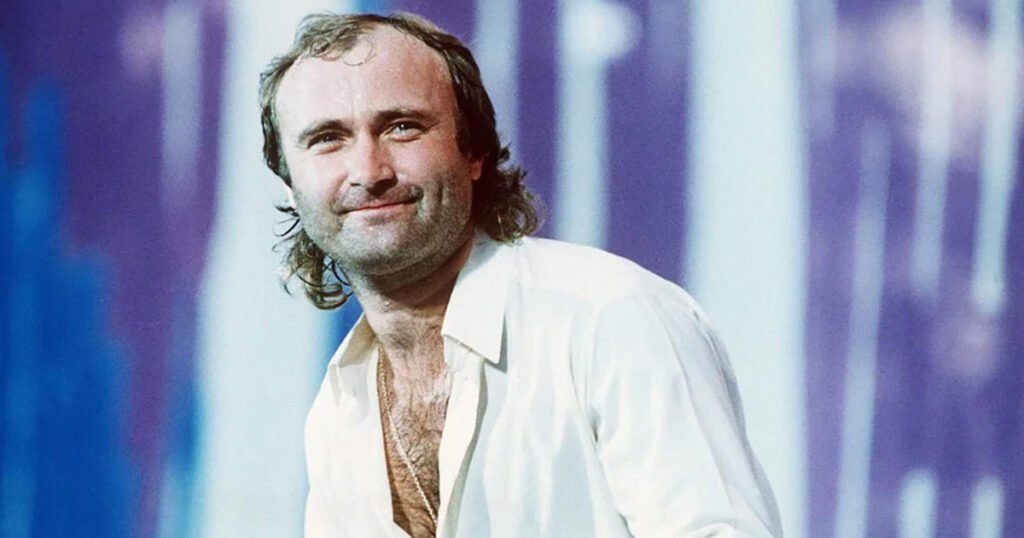
Let’s start off with a bang! If you were born during or before the 1970s, Phil Collins probably needs no introduction. He first rose to fame as the drummer and lead singer for the rock band Genesis, which formed in 1967 (though Collins joined in 1970). He’s since gone on to have a prominent solo career as well.
Collins’ most famous song is probably “Invisible Touch,” which he released with Genesis. His solo song “In The Air Tonight” was—and still is—a gigantic hit in its own right.
How Did He Lose His Hearing?
Around the year 2000, Phil Collins came down with a nasty viral infection that left one of his ears with diminished hearing. Even apart from that, he developed a more general hearing loss in both ears due to the constant bombardment of loud music during his shows.
Phil Collins’ career was exceptional. His prowess as a true musician is exemplified by the fact that he initially joined Genesis as their drummer—and it wasn’t until five years later that Peter Gabriel left the band and Collins took over as the singer.
Sean Forbes
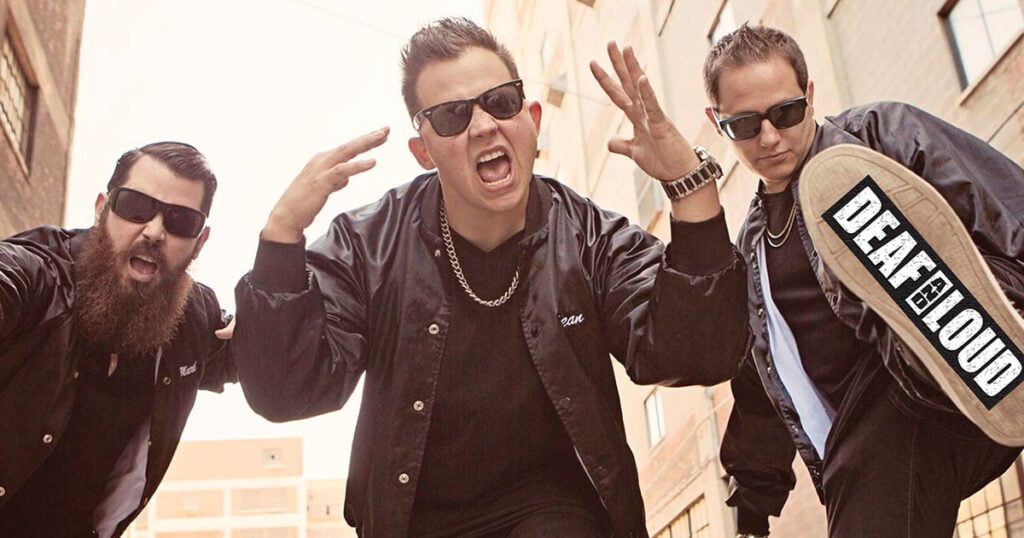
Sean Forbes is a hip-hop artist and also one of the deaf community’s greatest advocates. Forbes first burst onto the music scene with his debut single, “I’m Deaf,” in 2010, after gaining support from fellow Motown star Eminem and his producers. The song, which playfully speaks to Forbes’ hearing loss, states, “I’m deafer than Def Jam, so so deaf.”
Two years later, Forbes released his debut album Perfect Imperfections, and went on a global tour to promote the album. More recently, Forbes’ 2020 album release Little Victories landed for a time at #1 across all music genres on the Amazon charts—an unprecedented feat for a deaf solo artist.
How Did He Lose His Hearing?
Unlike many other artists on this list, Sean Forbes has been deaf since early childhood. Doctors suspected a bout with spinal meningitis at just one-year-old was the root cause of his hearing loss.
Forbes was born into a musically inclined family, and his parents were determined not to let his hearing impairment stop him from fully embracing his passion. They bought him a drum set when he was five, and he played in various childhood bands before attending the National Technical Institute for the Deaf in Rochester, New York.
In addition to his solo work, Forbes co-founded the Deaf Professional Arts Network, which features American Sign Language interpretation music videos. He has since contributed to many popular songs in ASL, including John Mayer’s “Waiting on the World To Change,” which became a veritable soundtrack for the deaf community.
Forbes has shared the stage with musical greats like Stevie Wonder and Eminem and was a part of the first-ever ASL performer list in the Super Bowl Halftime Show in 2022.
Dave Grohl
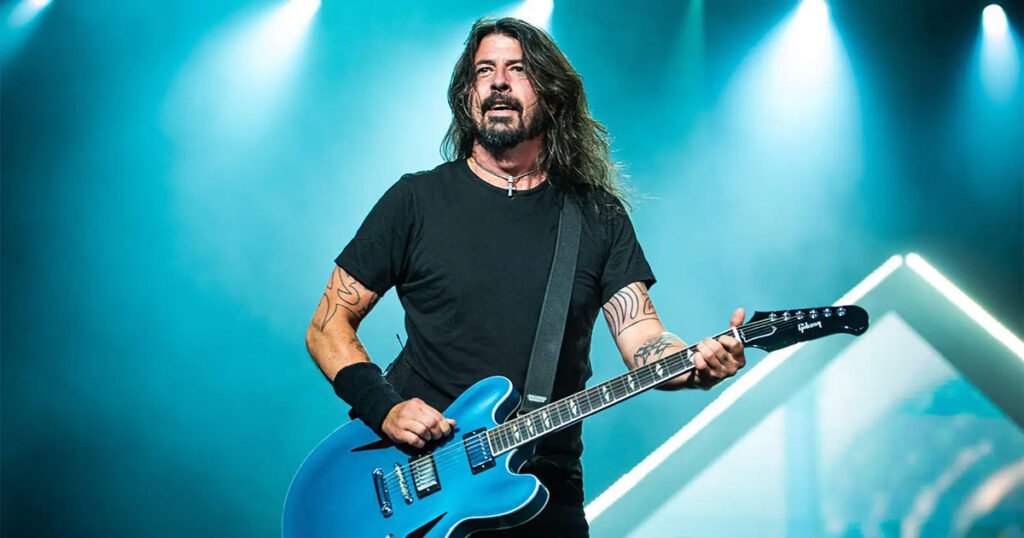
Similar to Phil Collins, Dave Grohl got his start in the music world as a drummer. He held down the rhythm section for rock band Nirvana, beginning in 1990. However, most people really know him for his growly vocals as the lead singer for his band Foo Fighters, which he started in 1994.
Grohl played drums on Nirvana’s album Nevermind, which became an absolute smash hit. Under Foo Fighters, some of his most popular songs are “Everlong,” “The Pretender,” and “Best of You.”
How Did He Lose His Hearing?
Like many of the musicians on this list, Dave Grohl lost his hearing gradually, after years and years of simply being a touring musician and putting on rock concerts night after night.
He recently appeared on The Howard Stern Show, during which he expressed his annoyance about the COVID-19 pandemic. For him, the worst part of the whole thing was the mask-wearing, which has negatively impacted his ability to communicate. Why? Because, as he said on the show, “I’ve been reading lips for, like, 20 years.”
Fun fact: Dave wrote the Foo Fighters’ first song, “This Is A Call,” while in Ireland for his honeymoon.
Signmark
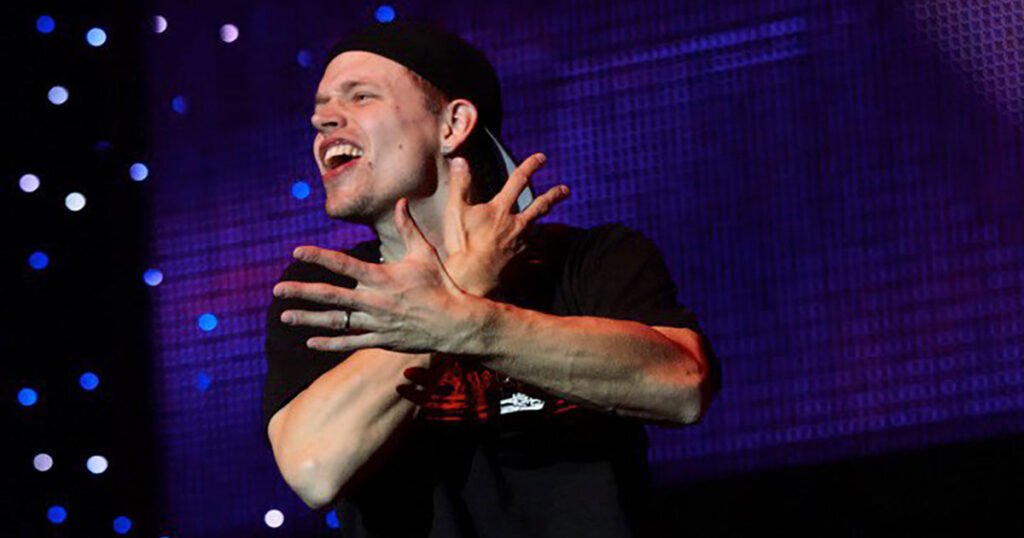
Marko Vilhelm Vuoriheimo, better known as rapper Signmark, came onto the music scene in 2006 with his self-titled debut album tailored towards his home country, Finland, and the signing community there.
In 2009, he finished second in Finland’s Eurovision Song Contest qualifier, which led to him becoming the first deaf person to sign an international recording contract with Warner Music a few months later.
His 2010 album Breaking The Rules is arguably his most successful album, with catchy tunes like “Speakerbox” and “Talk 2 the Hand.”
How Did He Lose His Hearing?
Signmark was born deaf and grew up with several other deaf family members, who incidentally became his first audience when he started performing MTV music videos in sign language as a kid.
Today, Signmark is beloved in the deaf community and has performed in over 40 countries around the world. He believes the deaf community should be viewed as a linguistic minority rather than disabled.
When Signmark performs, he tries to incorporate as many visuals into his songs as possible, including holding his hands higher or lower depending on the tone and feel of the music.
Pete Townshend
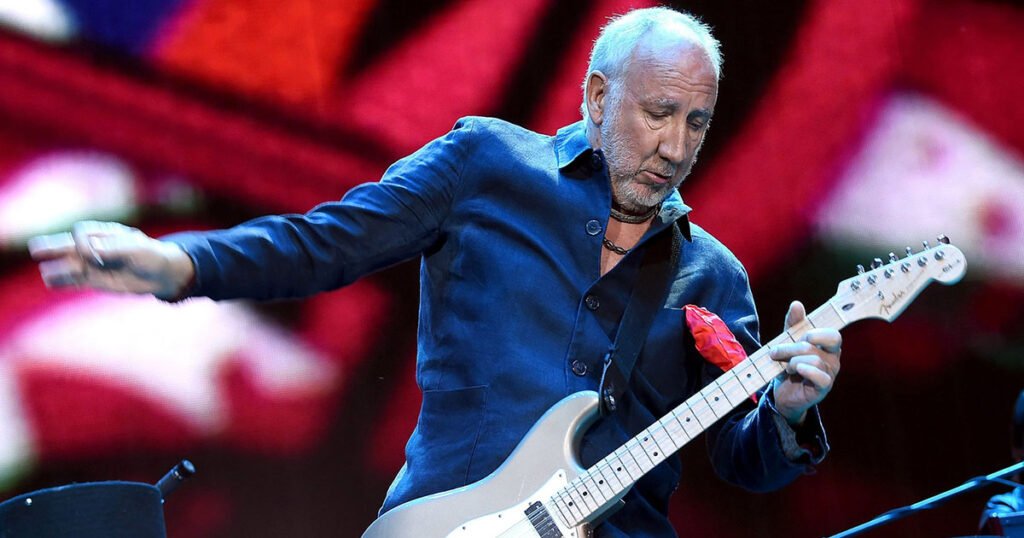
Though “Pete Townshend” might not be a household name verbatim, you surely know of his legendary rock band, The Who. The Who is known for its rough, bold style, as well as clever songwriting. The band started in 1964, but it wasn’t until 1969 that they came to real fame. Like almost every famous frontman, Townshend started a solo career as well, but he never rose to the same level of fame as he did with The Who.
The Who’s most famous song is unequivocally “Baba O’Riley,” often misnamed as “Teenage Wasteland,” because of the repetitive lyrics. Another iconic song of theirs is “Pinball Wizard,” a driving rock song that follows a young pinball prodigy who is deaf, mute and blind.
How Did He Lose His Hearing?
The Who were known for destroying their instruments and equipment as part of the revelry of their live shows. Townshend’s partial deafness was caused, at least in part, by one such instance when things got especially out of hand.
The band’s drummer, Keith Moon, allegedly stored a container of gunpowder next to his drums during a performance on live television. As you can probably guess, the gunpowder exploded, resulting in a boom that rattled the entire room. As Townshend recalled, “My hair caught fire, and my hearing was never the same again.”
Pete Townshend was the first guitarist to really popularize the windmill strumming technique, though he was inspired by Keith Richards from the Rolling Stones.
Ayumi Hamasaki

If you’re familiar with J-Pop and Japanese music, you’ve probably heard of Ayumi Hamasaki. Hamasaki has been making waves in the music and entertainment industry for years, starting with her 1998 debut single “Poker Face.”
The following year, she released her debut album A Song for xx, which earned her Best New Artist at Japan’s Golden Disc Awards. Hamasaki received great praise for her honest, heartfelt lyrics.
Over the next two decades, Hamasaki released over a dozen solo albums and several more collaborations that spanned genres from pop, to rock, to electronic. To date, she has sold over 50 million albums, making her the best-selling solo artist in Japanese music history and earning her the title “The Empress of J-Pop.”
How Did She Lose Her Hearing?
In 2008, Hamasaki publicly announced she had lost all of the hearing in her left ear the year prior. She stated the issue began in 2000 when she came down with an ear infection while touring and yet continued to perform.
In 2017, Hamasaki acknowledged hearing loss was now affecting her right ear and reported nausea and vertigo as side effects. Fans have long speculated that her unwillingness to slow her intensive performance scheduling may have negatively contributed to the impairment.
Hamasaki’s hard-working mentality and entrepreneurial spirit have allowed her success to go beyond the walls of music. In addition to ten chart-topping albums, she has released a clothing line, acted in various films, and worked as a spokesmodel for powerhouse brands like Honda.
Mick Fleetwood
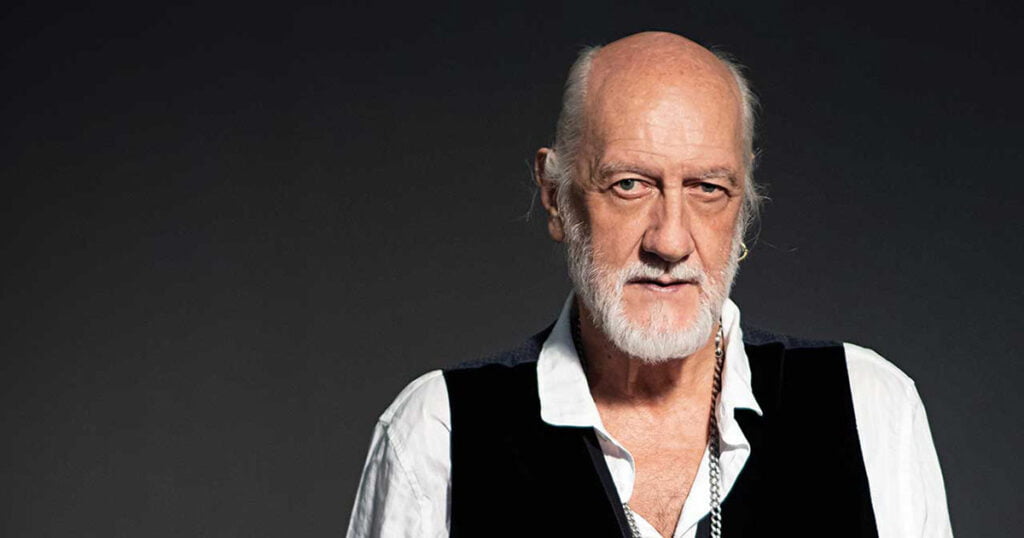
If you’ve never heard of the band Fleetwood Mac, you must be an alien from outer space—in which case, we have much more interesting things to talk about.
Jokes aside, Mick Fleetwood is obviously where Fleetwood Mac gets the first half of its name. Mick started the blues / pop / rock band as a drummer back in 1967, and it has since become arguably one of the most popular bands in the entire world.
“Dreams,” “The Chain,” and “Go Your Own Way,” from Fleetwood Mac’s Rumours album, are some of the band’s biggest chart-toppers.
How Did He Lose His Hearing?
Mick Fleetwood suffers from the classic rocker’s tale of gradual hearing loss due to excessive noise exposure at live events. Thankfully, his hearing loss is not significant enough to substantially affect his musical ability.
Fleetwood is an active voice in the hearing loss community, encouraging the use of hearing aids through a partnership with Energizer EZ Change, a company that makes hearing aid batteries.
Mick even played in a “quiet rock” concert, where the performers played songs with no speakers or traditional amps, and the audience members could adjust the volume on their own personal mini speakers.
Mick Fleetwood is around 6 feet 6 inches tall, and it’s estimated that his addiction to cocaine following his band’s tremendous success cost him a total of $60 million.
Amira Unplugged
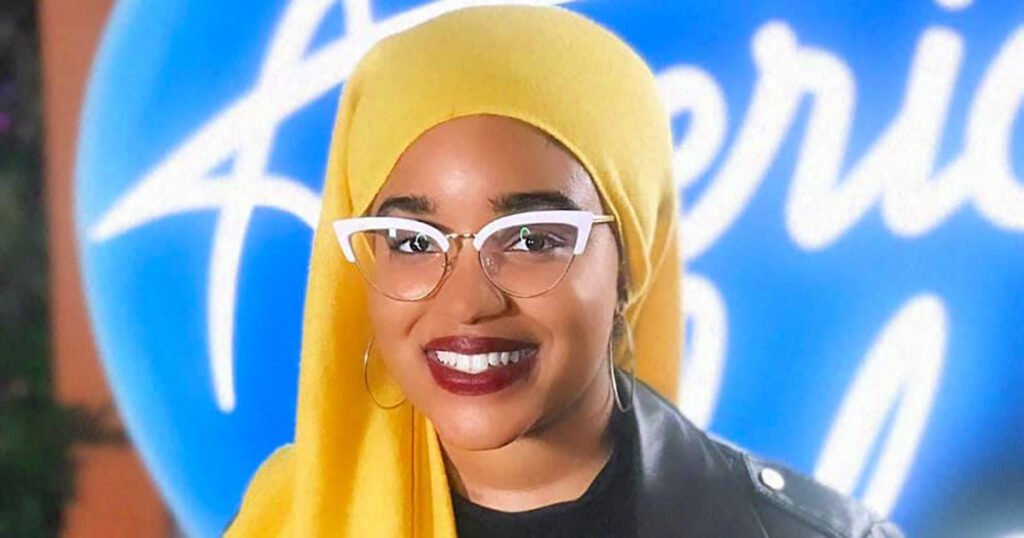
Born Amira Daughtery, Amira Unplugged is one of the latest and youngest deaf musicians to leave a positive mark on the music world. The African-American Muslim singer and rapper was born and raised in a small Georgia town, playing instruments like the violin and clarinet.
After graduating with a political science degree from Agnes Scott College, Amira initially planned to continue her education and pursue law. When COVID-19 struck, Amira became inspired by the uplifting videos she saw on social media platforms. She began making videos of her own to help others through the challenges of quarantine.
Amira began to sing and perform songs on TikTok, Instagram, and YouTube that spread positivity through sign language. She received an outpouring of positive feedback, which led to an American Idol invitation and a spot on MTV’s Becoming a Popstar.
In late 2022, Amira Unplugged released her first single, “Work Till the Morning,” and followed it with a second release titled “Help Me Help You Out.”
How Did She Lose Her Hearing?
Amira Unplugged lost her hearing in her left ear around the time she was eight. While she hasn’t spoken extensively on what caused the condition, she has acknowledged that her hearing loss, along with her race and religion, led to bullying during her childhood.
She has since used her experiences to stand up for marginalized individuals, including the deaf community, through social media and keynote speaking at conferences.
Brian Wilson
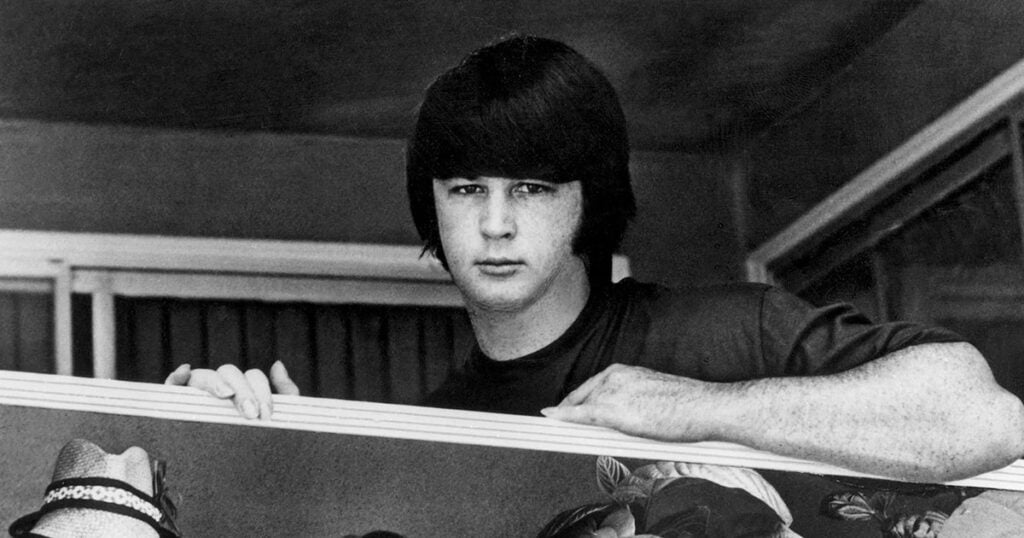
Brian Wilson was the co-founder and lead singer of The Beach Boys. The band, which Wilson started in 1961 with two of his brothers, went on to become one of the most iconic and unique musical groups of all time, pioneering the surf rock / psychedelic pop sound.
The band’s most popular hits include “Wouldn’t It Be Nice,” “Good Vibrations,” and “Surfin’ U.S.A.”
How Did He Lose His Hearing?
When Brian Wilson was only 11 years old, it was discovered that he could barely hear out of his right ear. His family doctor at the time said it was the result of a nerve impingement, or pinched nerve. While this diagnosis is probably correct, the underlying cause behind the pinched nerve remains a mystery. It is rumored that Wilson developed his deafness after his abusive father smacked him on the side of the head with a 2×4.
Wilson’s story with deafness is unique, as he probably never knew, or can’t remember, what it was like to hear perfectly. It’s also unique in the sense that his deafness had nothing at all to do with his music career, but rather medical issues.
Brian Wilson suffered from mental health problems. He had a nervous breakdown at one point and, due to a severe case of agoraphobia, spent long periods of time in his bedroom.
Rachel Goswell
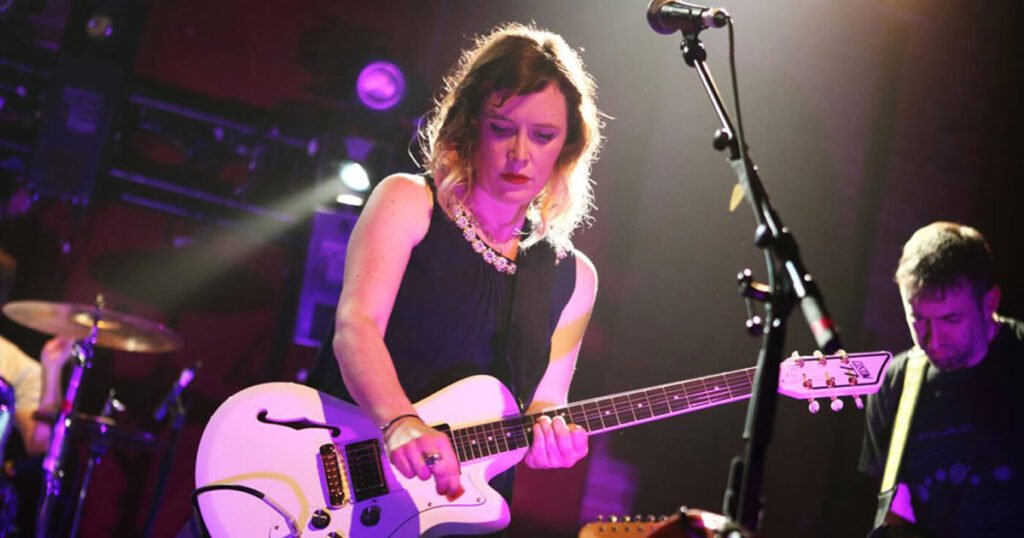
English singer-songwriter Rachel Goswell is one of the most well-known singers in the “shoegaze” genre, which got started in the late 1980s.
Sometimes referred to as dream pop, the subgenre is a heavily distorted style of music featuring indistinct vocals, heavy bass guitars, and loud, consistent drums. Critics were initially receptive to the genre before some turned on it in the 1990s, to the detriment of Goswell and her band, Slowdive.
She and her bandmates then pivoted to a folk-rock style, under the new band name Mojave 3, in the mid-1990s. Goswell later released a solo album, Waves Are Universal, in the early 2000s.
In recent years, Goswell and her bandmates have returned to their roots with several new Slowdive albums, including their 2023 release Everything Is Alive, which earned the band their first Top 10 album in the United Kingdom and four other countries.
How Did She Lose Her Hearing?
Goswell was struggling with her health and the loss of her grandfather when she developed an ear infection in 2006 that led to permanent tinnitus.
Goswell spent the next year doing physiotherapy to retrain her body’s balance, which had suffered from uneven hearing loss. Coincidentally, Goswell gave birth to a son who is profoundly deaf in 2010.
Goswell looks back on her early years with Slowdive as “fuzzy,” due to her heavy marijuana use. She also struggled with alcohol for years, but admirably cleaned up her act when she became a mother.
Paul Stanley
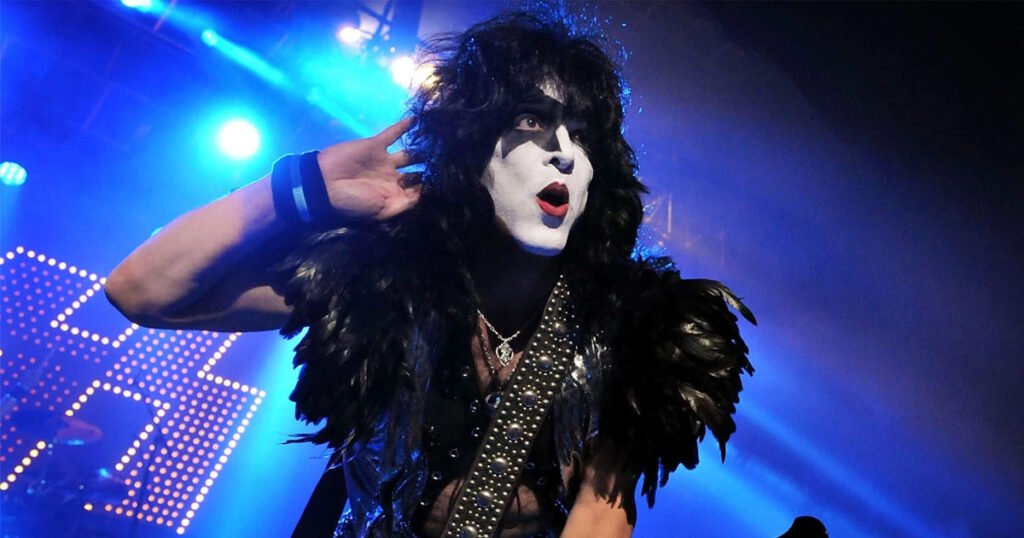
KISS would not be KISS without its lead vocalist Paul Stanley. Stanley formed KISS in 1973 after his former band Wicked Lester failed to pan out. KISS really started to take off around 1975 due to their on-stage antics like spitting blood and breathing fire.
“I Was Made For Lovin’ You” and “Rock And Roll All Nite” came to define KISS’s unique hard rock / glam rock / heavy metal sound.
How Did He Lose His Hearing?
Like Brian Wilson, Paul Stanley did not lose his hearing as a result of his music career. Instead, he was born with a condition called microtia, a defect in which one ear is small and improperly formed. This caused him to be almost entirely deaf on that side.
He was allegedly made fun of as a child for this defect—though this clearly did not stop him from pursuing his dreams of music. In 1982, he underwent reconstructive surgery to repair his malformed ear.
Paul Stanley, when he’s not playing music, is an avid painter and artist. Some of his paintings have even sold for crazy high price tags (like, $80,000).
DJ SupaLee
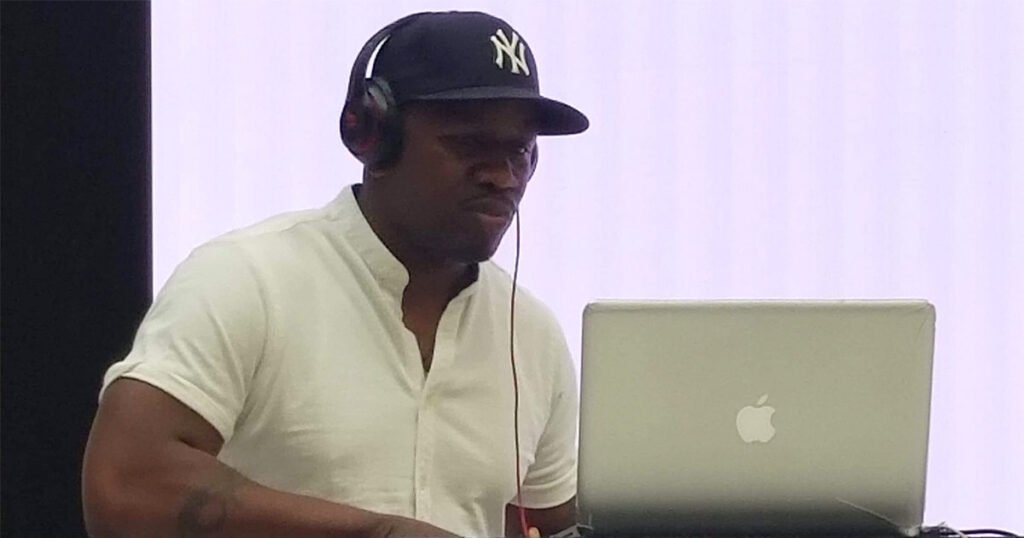
Born Leyland Lyken, DJ SupaLee is one of the most popular deaf DJs in the United States. Over his career, he’s hosted several notable events, like “SupaFest,” which highlighted deaf individuals in the entertainment world.
DJ SupaLee’s father was also a DJ, and he used to take SupaLee to parties, where he would sometimes end up falling asleep on the speakers. DJ SupaLee got his first DJing gig at age 16, inspiring him to continue spinning turntables as a full-time career.
One day while walking in Washington D.C., he passed by a random open mic event that was happening in the area. Though he couldn’t hear what the people were saying, it inspired him to orchestrate a similar event that gave talented deaf poets and artists a platform. Busboys and Poets, a D.C.-based cultural hub for creative talent, has since added an ASL Poetry open mic event, thanks to DJ SupaLee’s efforts.
How Did He Lose His Hearing?
When DJ SupaLee was a child, he nearly drowned and had to be revived. When he woke up, his hearing was gone.
His father worked with him extensively, teaching him how to focus on rhythm and bass to make up for his hearing deficiencies. DJ SupaLee has said that when he performs, he knows how to get a great sense of the crowd’s energy, and uses that to mix up what tunes he plays.
In 2023, DJ SupaLee hosted one of his largest-scale events ever, SupaFest Reunion 2023, in Rochester, New York. The festival marked thirteen years since the inaugural SupaFest at Gallaudet University, and featured rising deaf artists like Sho’roc and Sunshine 2.0.
Aaron Bruno
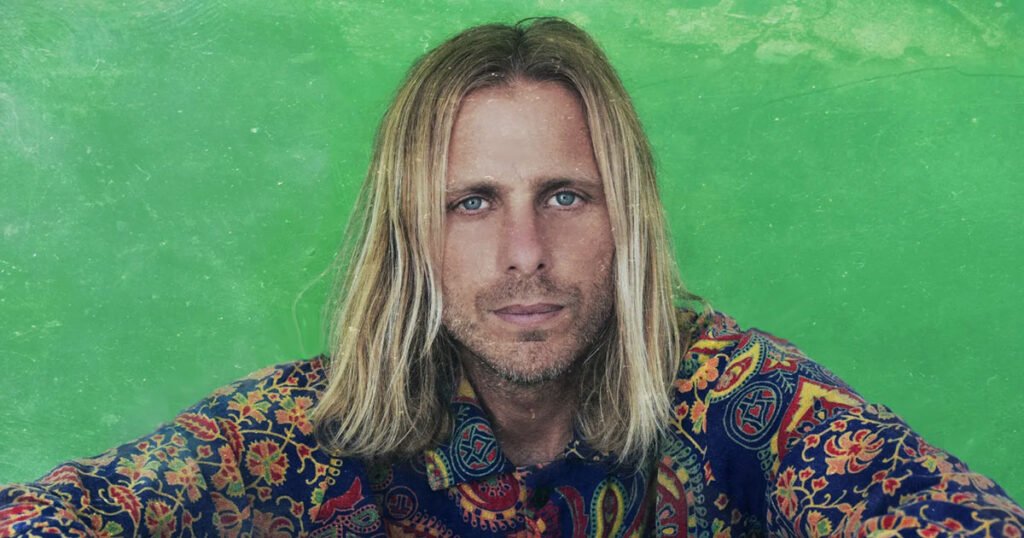
Not many songs with a one-word chorus have found the level of success that AWOLNation’s “Sail” has. The song, known for its heavy bass and synthesizer, was written by talented musician Aaron Bruno, AWOLNation’s lead vocalist and founder.
Bruno says the song, which references sailing away from life problems, was written at a crossroads in his life and came together within an hour. Over a decade later, the song is still the band’s biggest hit and has re-emerged onto the charts several times over.
Before reaching stardom, Bruno founded and played in several rock bands. Among those bands was Hometown Hero, which opened for bands like Stone Temple Pilots and Linkin Park. After “Sail,” there was no looking back—Bruno has been a member of AWOLNation ever since.
How Did He Lose His Hearing?
Bruno has stated he was born 80% deaf in his left ear. He says many people are surprised when they first learn this about him, and he feels like it gives him a different perspective on life.
He has also said that if you listen closely enough, you can tell he pans his instrument to his higher-functioning right ear, for obvious reasons.
One fun fact about Bruno is that while he was in high school, his nickname was AWOL because he was known to disappear at parties.
Warren Snipe
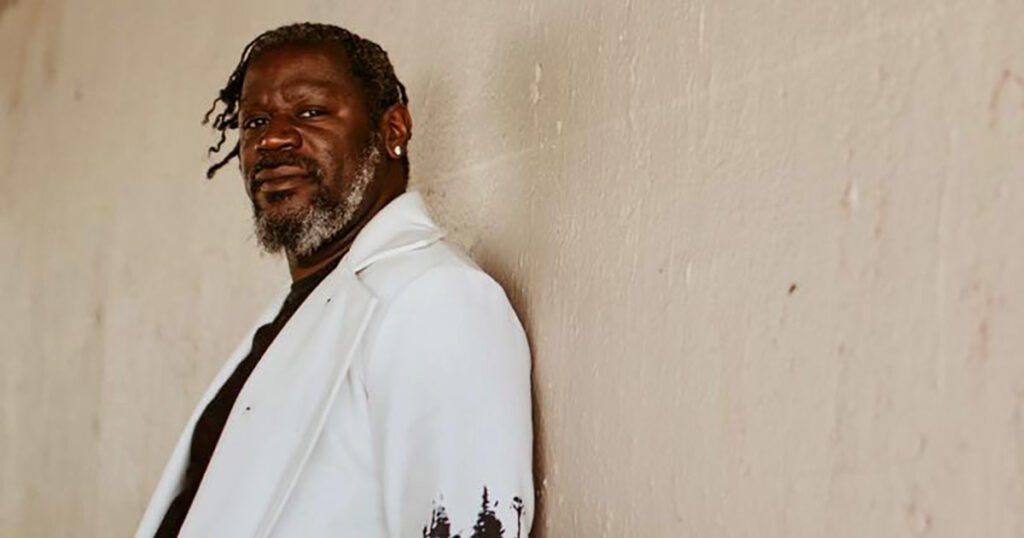
You may recall seeing a sign language interpreter stealing the show during the national anthem at the 2021 Super Bowl. The man behind this passionate performance was Warren Snipe, known as rapper Wawa’s World.
Snipe first emerged on the music scene with his album Deaf: SO What?! He followed that up with two more album releases, Wamilton and Unapologetically, both released in 2021.
“Loud!” is one of his most successful songs to date. The upbeat anthem was written to spread positivity during COVID-19, with lyrics like, “In my world, there’s no sound. Pop on the CI, yeah it’s loud. Stuck in the house, there’s no crowd. Bet, I’m gonna get loud.”
Wawa is known as the founder of dip-hop, a genre described as hip-hop through deaf eyes. It’s essentially hip-hop, only written and performed by deaf artists. The rapper hopes the genre can help put other deaf artists on the map.
How Did He Lose His Hearing?
Snipe was born deaf and has stated that the condition runs in his family. Shockingly, he did not have access to learning ASL until he went to college at age 17.
The rapper, who now wears a cochlear implant, continues to explore new ways to positively influence the deaf community. He believes that deaf people can be as powerful as hearing people if they put in the work.
In addition to his music career, Snipe was a founding member of The Wild Zappers, an all-deaf male dancing company, and has appeared on TV shows like Black Lightning and Fear the Walking Dead.
Evelyn Glennie
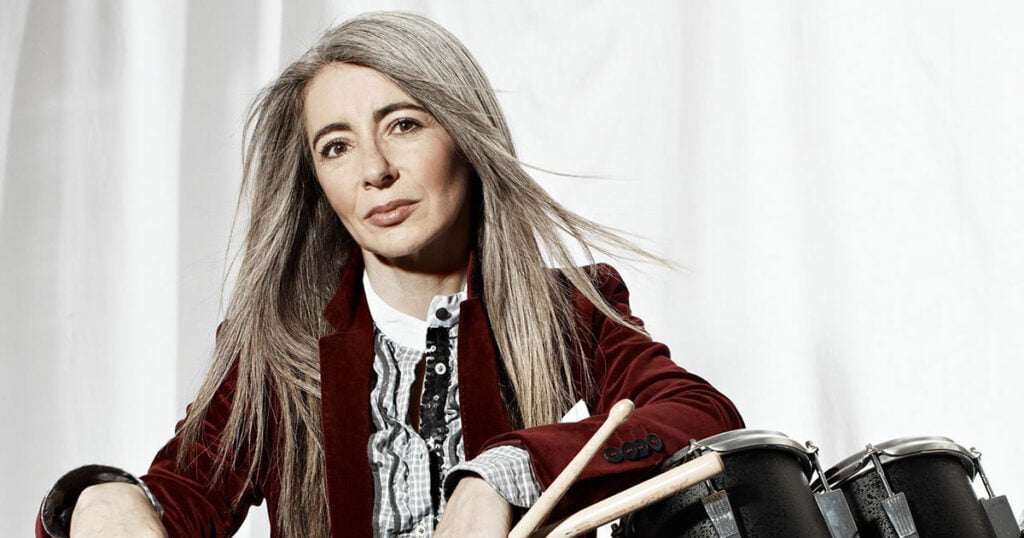
Evelyn Glennie is arguably one of the world’s first full-time solo female percussionists. Hailing from Scotland, Glennie’s favorite instruments include the xylophone, conga, and drums. Her many talents include the amazing ability to create a musical instrument from nearly any object she finds—and she now owns over one thousand of these instrument-objects.
Glennie’s storied career has resulted in many awards, including two Grammys and the Polar Music Prize. In 2012, she played the drums in the London Olympic Games opening ceremony. In addition to her many solo releases, she has collaborated with renowned global musicians like Icelandic icon Björk.
How Did She Lose Her Hearing?
Evelyn Glennie started losing her hearing at age 8, and was profoundly deaf by 12. She refused to let that disrupt her path to a successful music career and trained herself to “hear” more effectively with other body parts. She often performs barefoot to help her better feel the vibrations.
In 2015, she wrote the short paper “Hearing Essay” to describe her experience with hearing loss and the many misconceptions most people have regarding deafness. She believes her life is no different than most people and her deafness is no more defining of her than her hair color.
Fun fact: Glennie has received an incredible 28 honorary doctorates and became the Chancellor of Robert Gordon University in Aberdeen, Scotland, in 2021.
Danny Lane
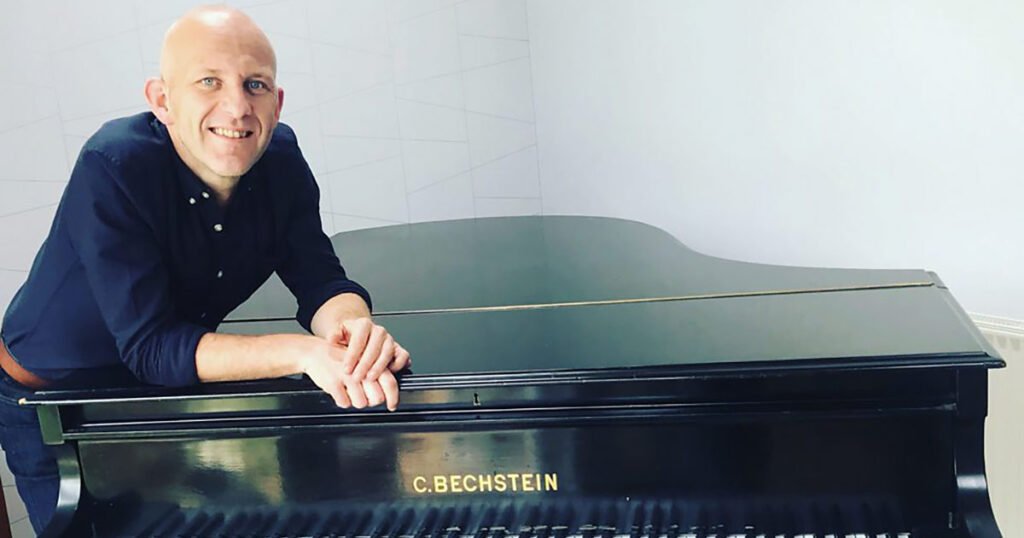
Danny Lane is an English pianist and composer who has been a gigantic ally to deaf children around the world for the past decade. Lane has performed in many globally acclaimed music venues in cities like Budapest, London, and Melbourne.
When Lane was growing up in school, every child was required to play a brass instrument—so he played the cornet (an instrument similar to the trumpet), which he learned in part by his teacher drawing diagrams showing how his lips should be positioned.
Years later, he chose to leave his mark on students of his own as the Artistic Director of the organization Music and the Deaf, with the primary mission of providing music opportunities for kids at all levels of deafness.
Among Music and the Deaf’s most impactful creations is the National Deaf Youth Orchestra, which has sparked the creation of similar youth orchestras across the globe.
How Did He Lose His Hearing?
Lane has been profoundly deaf since he was born. He has worn hearing aids since he was months old and relies on them heavily when he performs.
He recounts how people doubted him many times throughout his childhood, and how they failed to understand how he could successfully carve out a music career as a deaf person. Lane has mentioned that he treats music scores the same way he treats subtitles, in order to help him compensate for what his hearing aids can’t decipher.
As successful as Lane has been as a public performer, he prefers to perform at local schools where he can inspire deaf youth.
Ludwig van Beethoven
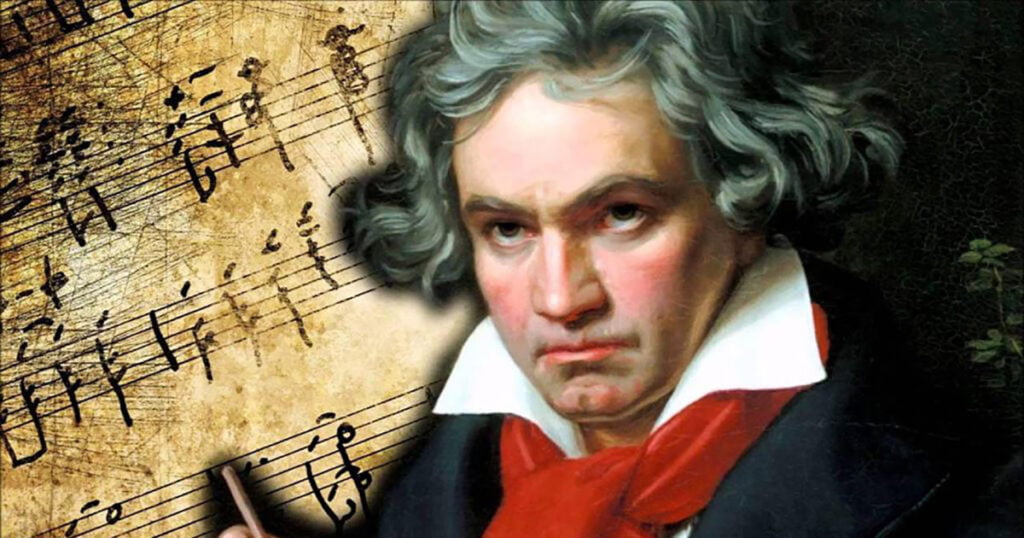
A discussion of deaf musicians simply would not be complete without mentioning perhaps the greatest musician of all time: Ludwig van Beethoven. Born in 1770, Beethoven began composing music at the tender age of nine. Even now, 250 years later, his music still influences new artists and even brings people to tears—no lyrics required!
It’s hard to whittle Beethoven’s works down to a small list of greatest hits, but he’s probably best known for composing the breathtaking pieces “Symphony No. 5,” “Symphony No. 9,” and “Moonlight Sonata.”
How Did He Lose His Hearing?
Beethoven suffered from Paget’s disease of bone, which, similar to Brian Wilson’s story, pinched a nerve in his brain that caused him to gradually lose his hearing. By the time Beethoven was 44 years old, he couldn’t hear anything anymore out of either ear.
As is commonly known (but still no less amazing!) Beethoven composed “Symphony No. 9” and many other famous pieces after he had already permanently lost all of his hearing. Even for skilled musicians, this feat is beyond astounding.
Beethoven’s ability to compose works of such beauty simply from his intuitive knowledge of how the notes should sound has cemented him as one of history’s greatest musical geniuses.
Here’s a fun fact about Beethoven (though it’s rather sad): during his life, he proposed marriage three separate times, and received a “no” each time. He never married, though his music speaks of the passion and romanticism within.
Share this post with your friends using these one-click sharing options:
👉 Click here to share on Facebook.
👉 Click here to share on X.
👉 Click here to share on LinkedIn.
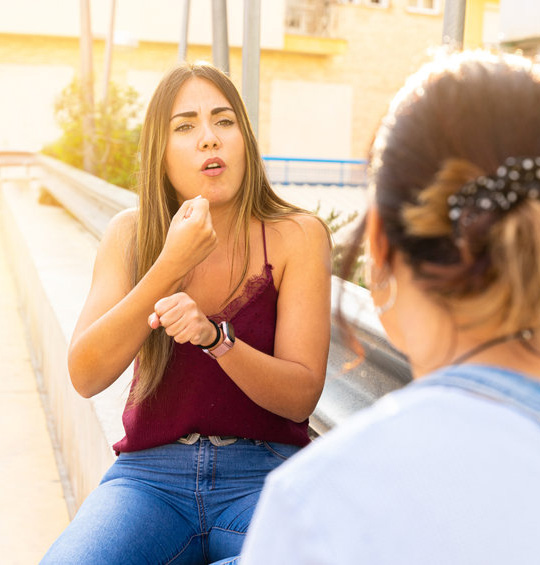
Get the latest interviews, tips and guides in your inbox.